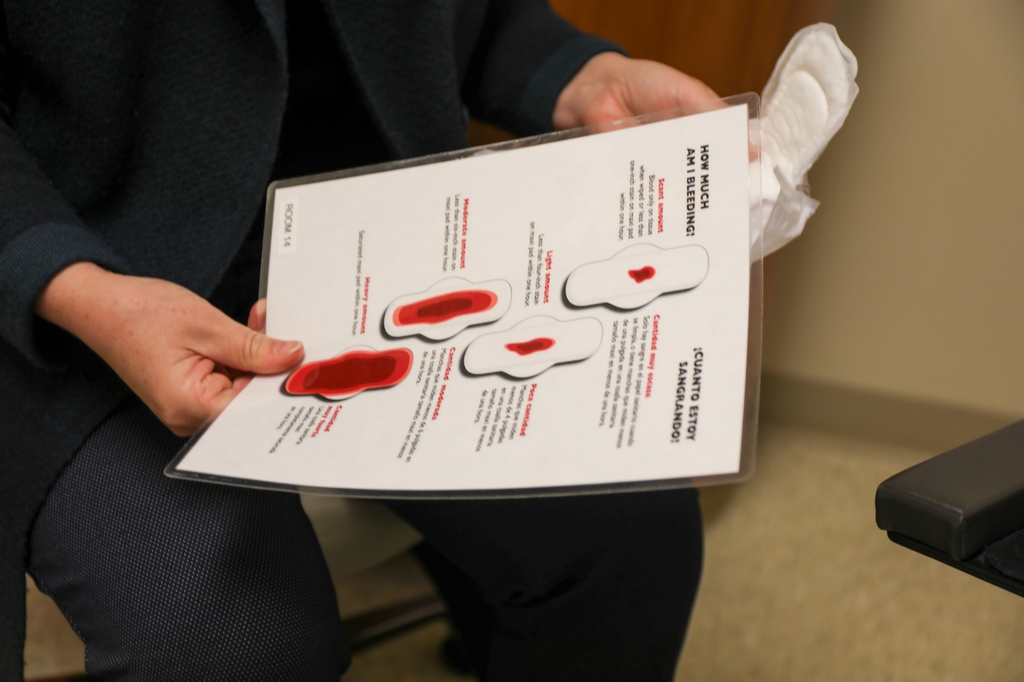
Clinician-researchers at Oregon Health & Science University's Center for Women's Health have been awarded more than $2 million in research funding from the National Institutes of Health to better understand treatments for heavy menstrual bleeding in people with chronic bleeding disorders — conditions that have been historically understudied.

"A variety of treatment options for heavy menstrual bleeding exist. However, few studies are focused on those with bleeding disorders, which makes it challenging for providers to offer truly informed decision-making," said Maureen Baldwin, M.D., M.P.H., associate professor of obstetrics and gynecology in the OHSU School of Medicine and principal investigator of the research. "This work will allow us to determine the benefits and expected outcomes of treatment options for this population, which has been systematically excluded from previous trials."
Heavy menstrual bleeding is common among adolescents and young adults with a heritable bleeding disorder, a disease or blood factor deficiency inherited at birth that prevents blood from properly clotting. These disorders can negatively impact quality of life and physical and mental health. Heavy menstrual bleeding may lead to difficulty with participation in education and activities of daily life, and excessive blood loss can cause anemia and other health problems.
Effective treatment options, including the use of hormonal medications like an IUD or oral pill, are available and can decrease bleeding and improve quality of life by suppressing menstruation or slowing bleeding. However, the effectiveness of these treatments has not been studied in those specifically with bleeding disorders, leaving significant gaps in clinical knowledge.
This grant will enable OHSU and research partners across the country to conduct a multicenter trial targeting adolescents and young adults with bleeding disorders, with a goal of understanding various treatments' impact on bleeding management and quality of life.
The research team, which includes co-principal investigator Allison Wheeler, M.D., a pediatric hematologist at the University of Washington, and other hematologists, gynecologists and adolescent medicine physicians, will recruit a robust cohort of more than 300 participants at eight sites around the country. They'll follow participants in treatment for six months to determine the impact on their bleeding and quality of life. The research team also includes several youths from around the United States who are personally living with a bleeding disorder and heavy menstrual bleeding; this Youth Advisory Board will review study materials and oversee the report back of data to their community.
These insights will provide a wealth of information to guide counseling to patients and aid in treatment decisions, as well as generate data that will inform future clinical practice guidelines for patients with bleeding disorders.
"Bleeding disorders have been significantly understudied, and as a result, many patients who experience these health challenges are overlooked, dismissed and left to suffer in silence," Baldwin said. "This work will help bridge this gap and provide much-needed evidence to improve the health and lives of patients who are impacted by heavy menstrual bleeding."
This research reported is supported by the is supported by the National Heart, Lung, And Blood Institute of the National Institutes of Health under Award Number 1R01HL173767-01. The content is solely the responsibility of the authors and does not necessarily represent the official views of the National Institutes of Health.






